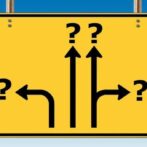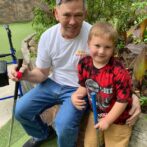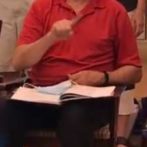Snapshots of Dementia: Driven to Distraction, Part 2
Photo by Khorena Sanders on Unsplash Author’s Note: This post is part two of a two-part series. Check out part one at this link, then pick up the story below. For one of the first times ever, I posted a brief summary of my concern on the Facebook support group I had recently joined for spouses or partners of those with frontotemporal degeneration (FTD). By this time, my kids and I had looked at the symptoms of FTD, behavioral type, and been amazed. After months and years of trying to find out what was wrong, here was a disease that looked like a perfect match. Why had no one mentioned this before? We’d have to wait for more testing, but it certainly looked like this was a possibility. I may write more about this later, but this group was rapidly becoming an information source, sounding board and source of encouragement for me. And this case, it was a lifeline. I shared the various driving-related incidents that had occurred and that we still didn’t have a real diagnosis or definitive answer. But to a person, everyone who responded (and there were more than 40 who did) to my question said: Do it now. Don’t delay. Keep him from driving no matter what. I read stories of accidents, of liabilities, of spouses who were still driving and had major problems. I read of doctors who refused to say the FTD patient needed to give up their license, only to have an accident occur. But mostly, I read what I’d already read on this site: Our story. And I knew it was time. I shared all this information (what had happened with their dad and driving, what our former pastor had said, what the other spouses had said) in brief with the next set of reinforcements I called in: Our children. I am sure I sounded at least somewhat irrational (after all, by this point, I probably had sleep deprivation.) But I could not in good conscience keep letting Tom out on the road. Or could I? I knew I needed the wise counsel of those who also loved him and wanted his best. I didn’t want to mess this up. I don’t actually remember which of our children I contacted, but I do know they all agreed to “talk amongst themselves.” The conclusion? No, Dad should not drive. Yes, they should help me tell him. Our two oldest daughters suggested they initiate a Skype call with Tom and me (this was before Zoom had reached its present-day popularity). “After all,” said one, not quite tongue-in-cheek. “He’ll know we must be serious if the two of us agree.” We made the call....
Read More








